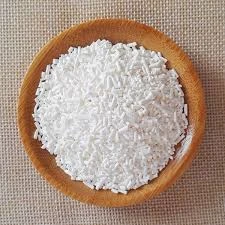
inorganic fertilizer
The Role of Inorganic Fertilizers in Modern Agriculture
Inorganic fertilizers, also known as synthetic or chemical fertilizers, are a critical component of modern agriculture. They are man-made substances designed to provide crops with essential nutrients, including nitrogen, phosphorus, and potassium, which are vital for optimal growth and productivity. The widespread use of inorganic fertilizers has significantly increased agricultural yields and contributed to global food security, but it has also raised concerns regarding environmental sustainability, soil health, and long-term agricultural practices.
One of the primary advantages of inorganic fertilizers is their ability to deliver nutrients in a readily available form. Unlike organic fertilizers, which can take time to decompose and release nutrients, inorganic fertilizers act quickly, allowing farmers to see immediate results. For instance, ammonium nitrate and urea provide nitrogen in a form that plants can absorb almost immediately, promoting rapid growth and improving crop performance. This rapid nutrient provision is particularly beneficial in intensive farming, where maximizing output is crucial.
The advent of inorganic fertilizers has transformed agricultural practices over the past century. During the Green Revolution of the 1960s and 1970s, the introduction of high-yielding crop varieties alongside synthetic fertilizers resulted in unprecedented increases in food production. Countries like India and Mexico experienced significant reductions in hunger and poverty levels as a direct result of these innovations. Today, millions of farmers around the world rely on inorganic fertilizers to enhance their productivity and ensure food supply for growing populations.
Despite their benefits, the excessive use of inorganic fertilizers has raised several environmental concerns. One major issue is the phenomenon of nutrient leaching, where excess nitrogen and phosphorus from fertilizers wash away into waterways, leading to pollution and the formation of dead zones in aquatic ecosystems. This can result in harmful algal blooms that produce toxins detrimental to both aquatic life and human health. Additionally, nutrient runoff can contaminate drinking water sources, posing further health risks.
inorganic fertilizer

Another concern is the impact of inorganic fertilizers on soil health. Continuous reliance on chemical inputs can disrupt the natural balance of soil ecosystems. High levels of certain nutrients, particularly nitrogen, can lead to soil acidification, affecting the availability of other essential nutrients and harming beneficial soil organisms. Moreover, the constant addition of inorganic fertilizers without the inclusion of organic amendments can reduce soil organic matter, leading to decreased soil fertility over time.
To mitigate these environmental impacts, many experts advocate for a more integrated approach to nutrient management that combines inorganic fertilizers with organic practices. This approach, often referred to as integrated nutrient management (INM), emphasizes the importance of maintaining soil health and ensuring sustainable agricultural practices. By incorporating organic fertilizers, crop rotation, cover cropping, and reduced tillage, farmers can improve soil structure, enhance biodiversity, and promote nutrient cycling.
Research has also focused on developing more precise fertilizer application techniques. Precision agriculture technologies enable farmers to apply fertilizers more efficiently, targeting specific areas of their fields that require additional nutrients. This not only reduces the overall amount of fertilizers needed but also minimizes the risk of nutrient runoff and environmental degradation. Moreover, the use of slow-release fertilizers and controlled-release formulations can further enhance the efficiency of nutrient use, allowing crops to absorb what they need without excess leaching.
In conclusion, inorganic fertilizers play a crucial role in modern agriculture, significantly contributing to food production and security. However, their use must be balanced with environmental considerations and sustainable practices. By adopting integrated nutrient management strategies and leveraging precision agriculture technologies, farmers can maximize the benefits of inorganic fertilizers while minimizing their negative impacts. The future of agriculture will depend on the ability to innovate in nutrient management, ensuring that food production remains sustainable and environmentally friendly for generations to come.
-
Why Glacial Acetic Acid Food Grade Is Essential in FlavorNewsMay.26,2025
-
Surging Export Growth of Food Additives in ChinaNewsMay.26,2025
-
How Ammonium Nitrate Fertilizer Boosts Crop YieldsNewsMay.26,2025
-
How 1,2,3-Benzotriazole Shields Plastics from UV DegradationNewsMay.26,2025
-
Cyanide in Gold Mining: Protecting People and the PlanetNewsMay.26,2025
-
Aluminum Hydroxide in Modern Sunscreen FormulationsNewsMay.26,2025
-
Understanding Synthetic Rubber OptionsNewsApr.27,2025
Hebei Tenger Chemical Technology Co., Ltd. focuses on the chemical industry and is committed to the export service of chemical raw materials.
-

view more DiethanolisopropanolamineIn the ever-growing field of chemical solutions, diethanolisopropanolamine (DEIPA) stands out as a versatile and important compound. Due to its unique chemical structure and properties, DEIPA is of interest to various industries including construction, personal care, and agriculture. -

view more TriisopropanolamineTriisopropanolamine (TIPA) alkanol amine substance, is a kind of alcohol amine compound with amino and alcohol hydroxyl, and because of its molecules contains both amino and hydroxyl. -

view more Tetramethyl Thiuram DisulfideTetramethyl thiuram disulfide, also known as TMTD, is a white to light-yellow powder with a distinct sulfur-like odor. It is soluble in organic solvents such as benzene, acetone, and ethyl acetate, making it highly versatile for use in different formulations. TMTD is known for its excellent vulcanization acceleration properties, which makes it a key ingredient in the production of rubber products. Additionally, it acts as an effective fungicide and bactericide, making it valuable in agricultural applications. Its high purity and stability ensure consistent performance, making it a preferred choice for manufacturers across various industries.











